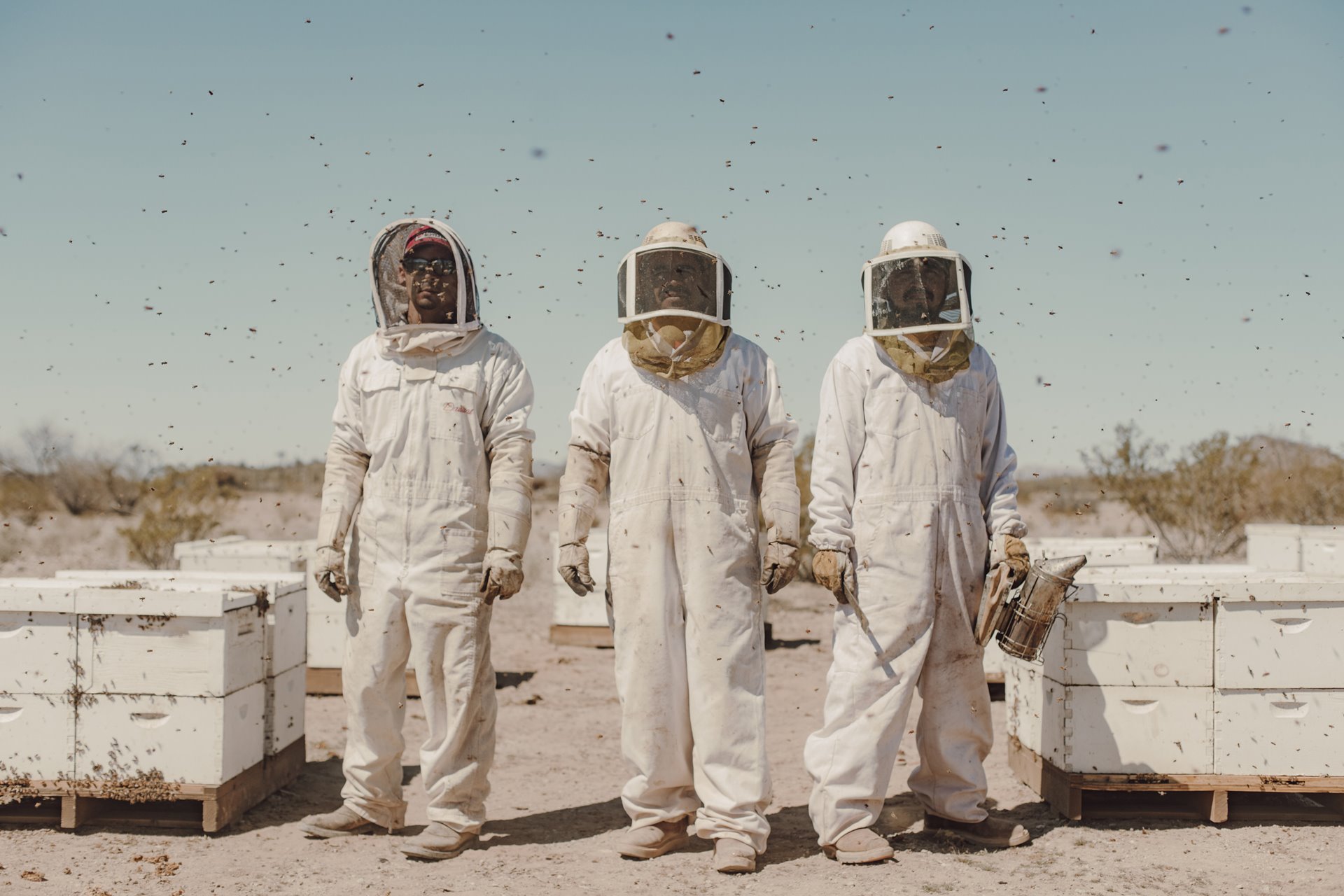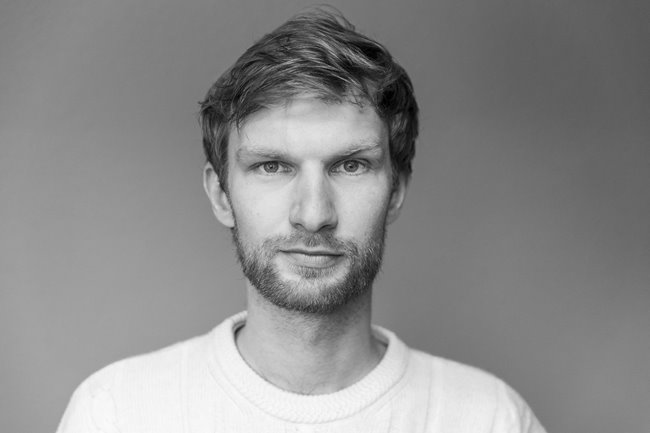Alfredo, Ubaldo, and José tend beehives near Wenden in the Arizona desert, United States. A substantial decrease in rainfall in the area means that the men must now provide water for the bees in troughs.
Heat and drought weakens bees, making them more susceptible to pathogens and parasites, and impacts the plants from which they feed. Between 2019 and 2020, colonies of managed honey-bees declined by 43.7% across the US. Bees are vital for pollinating many crops, and so play an important role in food security for humans.
This image is part of a broader project on how the climate crisis and increasing water demand are affecting the Colorado River, which flows nearby. Annual flow in the Colorado River has shrunk 20 percent in the past 30 years, according to a river program manager. The Colorado relies on snowmelt from the Rocky Mountains and precipitation in upstream forests that collects in lakes and natural reservoirs. Drought and global heating have accelerated evaporation from reservoirs, and melted snowpack faster, so that rivers run dry earlier in the season. Hot, dry conditions have also parched the soil, which soaks up precipitation before it even reaches the river.
Water diverted for agriculture accounts for up to 80 percent of consumption in the Colorado River Basin, and a series of dams along the course of the river – providing drinking water to more than 40 million people and hydroelectric power to meet the needs of some seven million – further shrinks the flow.
In late 2022, the US government implemented severe restrictions on river-water use in states along the course of the Colorado River, cutting Arizona’s annual allocation by 21 percent.
Are you a photographer and/or passionate about press freedom? Sign up for our newsletter to stay updated on our annual contest and to hear about exhibitions near you.

